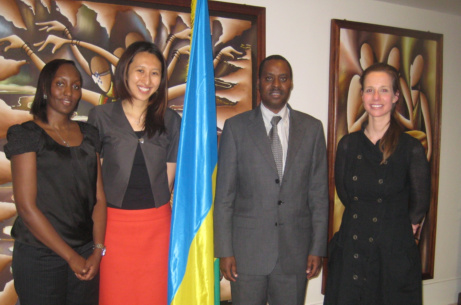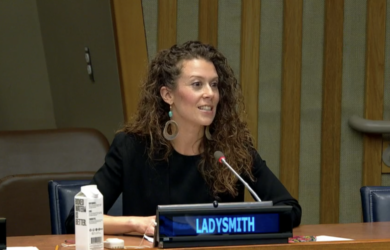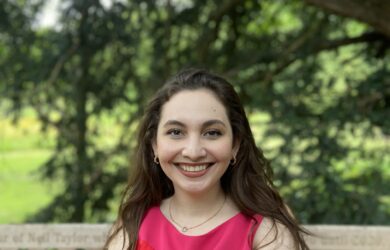
Julia Fan Li and her Cambridge team spearheaded Rwanda Entrepreneurship Week.
A Gates scholar is spearheading an initiative to create an Entrepreneurship Week in Rwanda to help lift the country out of poverty.
Julia Fan Li [2008], who is studying for a PhD in Engineering, is one of a team of undergraduate and graduate students from the University of Cambridge who are working with 100 students at the Kigali Institute for Science and Technology (KIST), and a host of leading Rwandan entrepreneurs, to create the week-long conference, Rwanda Entrepreneurship Week. They are supported by Brussels Airlines and Staples.
The kernel of the idea was formed through PhD student Julia Fan Li’s experience of entrepreneurship in both Cambridge and Rwanda. “In Cambridge we have so many resources to support students interested in enterprise. When I worked in Rwanda in 2009, I couldn’t help noticing that despite the entrepreneurial spirit of all the students I met, there was an absence of structured support for them to learn and apply their skills outside the classroom.”
After a meeting with the prestigious KIST university in Rwanda, the African Innovation Prize was born: the first business planning competition for students in Rwanda who wanted to set up their own enterprises.
In its inaugural year the prize seed-funded a student initiative, Rwanda Environmental Design Ltd, that created a decompostable toilet; and in its second year, phase 1 business plan winners have shown equal creativity, with paper, light bulb and solar businesses all winning prizes.
However, a key need was identified through running the business planning competition: an absence of hard and soft skills training in entrepreneurship for students new to the idea of enterprise.
“Rwanda Entrepreneurship Week was a natural extension of our work with the African Innovation Prize”, says Sarah Teacher, a Development Studies MPhil at Cambridge. “Through training Rwandan university students in the hard and soft skills of entrepreneurship we know we can inspire and support them to develop business in Rwanda.”
Led by established Rwandan entrepreneurs and organised by the Cambridge team, the week, which runs from July 25 to 30, will enable students at KIST and other Rwandan universities to engage in product development, understand different business models, learn how to analyse a market, network, measure performance and fund their initiatives.
“We fly out there with Brussels Airlines in July and can’t wait to meet the students who have shown so much enthusiasm for business creation,” says Sarah. “We’ve had such a fantastic response from contacts in Rwanda and Cambridge: the Rwandan High Commission has helped us tap into Rwanda’s lively entrepreneurial sector and both Staples and Brussels Airlines have given us fantastic in-kind support for our work. We know that we are putting their contributions to great use: entrepreneurship and innovation created much of the wealth and growth that we see in the UK today and we hope that our initiative can contribute to the same bedrock of wealth creation for Rwanda.”
Cambridge students organising the Entrepreneurship Conference at Kigali Institute of Science Technology are Sarah Teacher, Alex Handy, Baillie Aaron, Jackie Stenson and Julia Fan Li.
To find out more about the students’ work on Rwandan entrepreneurship, and support them in realizing the conference please go to:http://www.beyondprofit.org.uk/beyondborders.php, follow them Twitter: @AIPrize, and check out their blog for more details:http://aiprize.wordpress.com/
Picture caption: University students Julia Fan Li and Sarah Teacher pictured second left and first right respetively] meet High Commissioner Ernest Rwamucyo and 1st Counsellor Linda Kalimba at the Rwanda High Commission in London.












